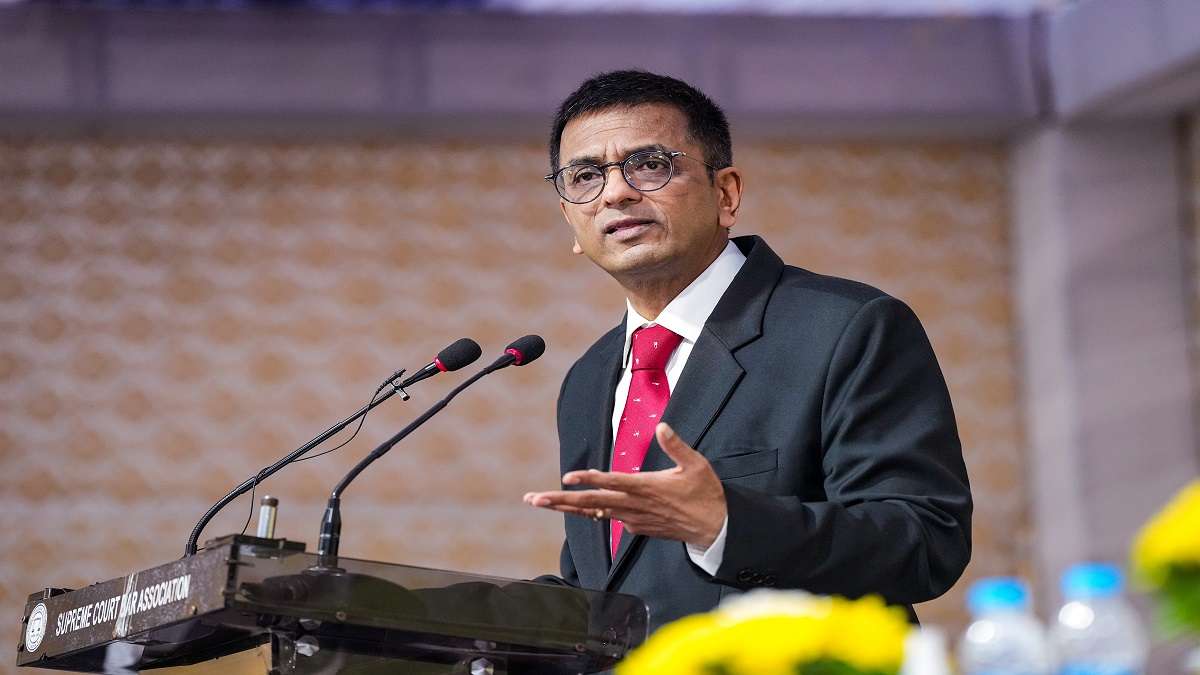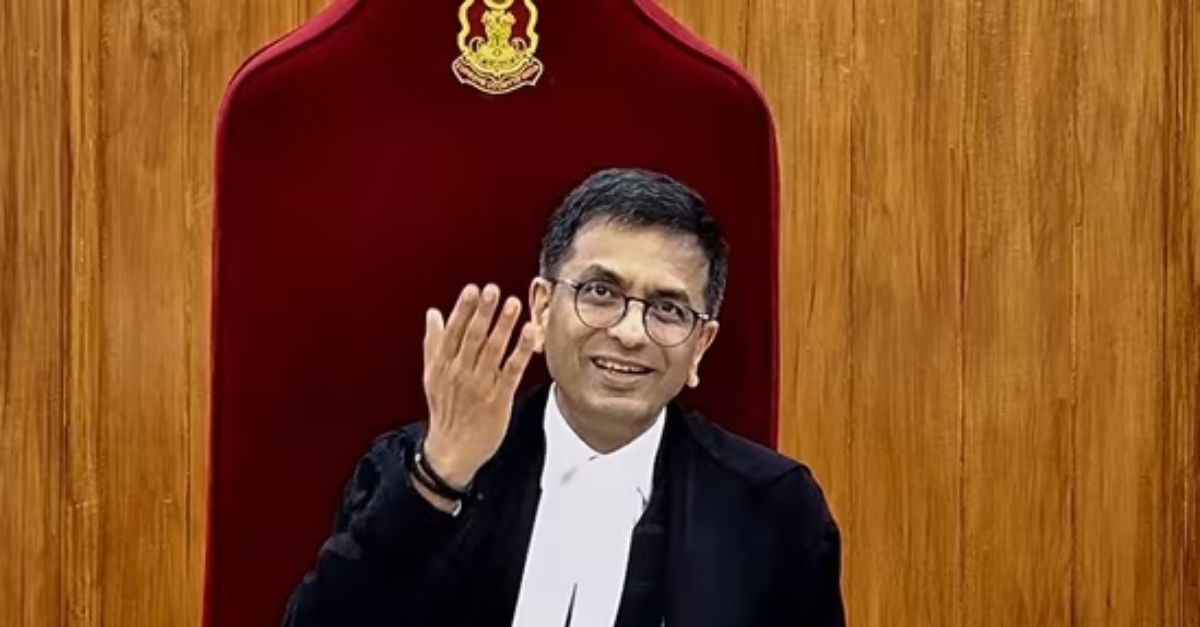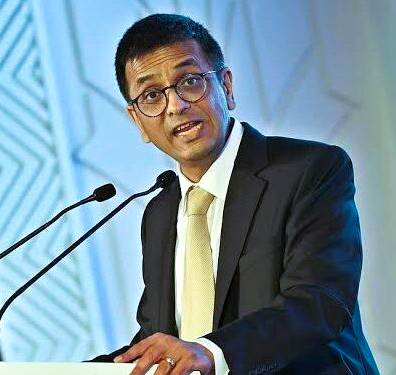In a move that has captured national attention, India’s Supreme Court has formally requested the immediate eviction of former Chief Justice of India (CJI) DY Chandrachud from his official residence in New Delhi. This decision has ignited debate across the country, raising questions about judicial protocol, personal hardship, and the pressures faced by public figures after retirement. The unfolding situation highlights the complex intersection of institutional rules, human circumstances, and the operational needs of the judiciary.
The eviction order against former Chief Justice DY Chandrachud has brought to light the delicate balance between enforcing institutional rules and respecting personal circumstances. This incident underscores the challenges institutions face when dealing with high-profile individuals who continue to occupy official resources beyond their tenure. It raises important questions about how rules should be applied fairly while considering human elements.
The judiciary’s decision to reclaim the official residence reflects a broader effort to maintain discipline and order within the system. Official residences are critical assets that support the effective functioning of the Supreme Court by ensuring that sitting judges have convenient access to the court. Delays in vacating such properties can disrupt administrative efficiency and create logistical challenges.
At the heart of the controversy is the issue of fairness. The rules surrounding post-retirement housing exist to prevent misuse and ensure equitable access for all judges. However, exceptional cases like Chandrachud’s highlight the need for flexible policies that can accommodate unforeseen personal hardships without compromising institutional integrity.
Public discourse around this matter has revealed a spectrum of opinions. Some argue that strict adherence to rules is necessary to uphold the judiciary’s credibility, while others emphasize compassion and the need to support individuals facing genuine difficulties. This debate reflects the broader societal tension between rule of law and empathy.
The situation also sheds light on the pressures faced by retired public officials who continue to live under public scrutiny. Their personal lives often intersect with their public roles, making transitions out of official positions particularly challenging. This case illustrates the human side of public service, where personal challenges can complicate adherence to formal protocols.
Looking ahead, this episode may prompt the judiciary to revisit its policies on post-retirement accommodations. Clearer guidelines that incorporate provisions for exceptional circumstances could help prevent similar situations in the future. Such reforms would aim to balance administrative needs with humane considerations.

Supreme Court Cites Rules, Demands Immediate Eviction
The Supreme Court administration has taken the step of formally seeking the repossession of Bungalow No. 5, Krishna Menon Marg, the official residence designated for the Chief Justice of India. Justice Chandrachud, who retired in November 2024, has remained in the residence beyond the permissible period. According to established rules, a retired CJI can retain official accommodation for up to six months after retirement. In this case, that period expired in May 2025, and a special extension granted until the end of May has also lapsed.
The court’s communication to the relevant authorities emphasized the need to return the bungalow to the Supreme Court’s housing pool for reallocation to sitting judges, citing the operational necessity of having official residences available for judicial administration. With the Supreme Court functioning at nearly full strength, the demand for official accommodation is at its peak, making timely transitions essential for smooth functioning.
Chandrachud’s Personal Circumstances and Public Response
Justice DY Chandrachud has explained the delay in vacating the residence by citing compelling personal reasons. He shared that his family, particularly his two daughters, faces serious health challenges requiring ongoing treatment in Delhi. Finding a suitable private residence that could accommodate these medical needs proved difficult, and the alternative government-allotted accommodation was reportedly not ready for immediate occupancy.
Chandrachud has stated that the Supreme Court administration and his successors were kept informed about his situation. He also noted that previous CJIs have received extensions for similar reasons and expressed his intention to vacate the bungalow within days. This explanation has drawn both sympathy and criticism, with some acknowledging the difficult balance between personal hardship and the enforcement of institutional rules.
Housing Rules and the Need for Judicial Accommodation
The rules governing post-retirement accommodation for judges are designed to ensure a smooth transition and the availability of official housing for sitting judges. The six-month grace period is intended to provide ample time for retired judges to make alternative arrangements. The urgency in this case is heightened by the fact that the official CJI residence has not been available for its intended purpose, prompting the administration’s intervention.
The move is seen as a reflection of the judiciary’s commitment to transparency and efficient resource management. It also highlights the importance placed on ensuring that the judiciary’s operational needs are met, even when dealing with its most senior members. The situation underscores the challenge of balancing institutional discipline with compassion for individual circumstances.
The ongoing debate about the eviction of former Chief Justice DY Chandrachud has also prompted calls for a more compassionate approach to public policy. Many observers believe that while rules are essential for governance, there should be mechanisms to address exceptional cases involving health or family emergencies, especially for individuals who have served the nation in high offices. This perspective is gaining traction as more details about Chandrachud’s personal circumstances come to light.
Legal scholars and former judges have weighed in, suggesting that the judiciary could consider establishing a review committee to handle requests for extensions or special accommodations. Such a body could ensure that decisions are made transparently and consistently, taking into account both institutional needs and humanitarian considerations. This approach could help prevent future controversies and provide a fair process for all retired officials.
The incident has also sparked discussion about the broader issue of post-retirement benefits and support for public servants. Some argue that adequate planning and transitional assistance should be part of the retirement process for judges and other high-ranking officials. Providing access to suitable housing, medical care, and counseling services can ease the transition and reduce the likelihood of disputes over official resources.
Public trust in the judiciary depends not only on the fair application of rules but also on the perception that the system is just and humane. How the Supreme Court handles this situation will influence public confidence in the institution’s ability to balance discipline with empathy. Transparent communication and a willingness to adapt policies when needed are key to maintaining this trust.
As the story continues to unfold, it serves as a case study in the complexities of governance and public administration. The resolution of the Chandrachud eviction issue will likely shape future protocols and set a benchmark for how similar cases are managed, reinforcing the importance of both institutional integrity and compassion in public life.
Public Debate: Rules, Precedent, and Compassion
The Supreme Court’s action has sparked a broader debate about the enforcement of rules versus compassion for individual circumstances. Many legal experts support the strict application of the housing guidelines to maintain institutional discipline, while others argue for greater flexibility in exceptional cases involving health or family emergencies. The situation has also highlighted the unique pressures faced by public officials, who must balance personal responsibilities with the expectations of their office.
Public opinion is divided, with some calling for a more humane approach considering the medical needs of Chandrachud’s family, while others insist that rules must apply equally to all, regardless of stature or circumstance. The case has become a focal point for discussions about post-retirement benefits, judicial accountability, and the human side of public service.

What Happens Next? The Road Ahead for the Supreme Court and Chandrachud
With the Supreme Court administration’s request now in the public domain, the relevant authorities are expected to take action to reclaim the bungalow. Justice Chandrachud has reiterated his commitment to vacate the premises as soon as possible, and it is anticipated that the transition will be completed shortly. The episode may prompt a review of existing policies to ensure that future cases are handled with both sensitivity and adherence to the law.
For the judiciary, the incident serves as a reminder of the importance of clear communication, procedural fairness, and the need to balance institutional requirements with empathy. As the Supreme Court continues to address its housing needs and administrative challenges, the focus will remain on upholding the integrity and credibility of India’s highest judicial body.
The role of communication is also crucial. Transparent and timely dialogue between retired judges and the administration can facilitate smoother transitions and reduce misunderstandings. Proactive engagement might help address issues before they escalate into public controversies.
This incident serves as a reminder of the importance of institutional resilience. The Supreme Court, as the apex judicial body, must demonstrate its ability to enforce rules impartially while adapting to unique situations. Maintaining this balance is essential for preserving public trust and the rule of law.

As the eviction process moves forward, it will be important for all parties involved to act with sensitivity and professionalism. Ensuring a respectful resolution can set a positive precedent for handling similar cases in the future and reinforce the judiciary’s commitment to fairness.
Ultimately, the case of DY Chandrachud’s eviction highlights the complex interplay between law, administration, and human factors. It calls for thoughtful reflection on how institutions can uphold standards while honoring the dignity and challenges of individuals who have served the nation at the highest levels.
Follow: Supreme court

